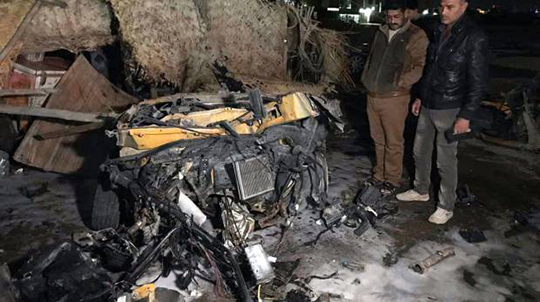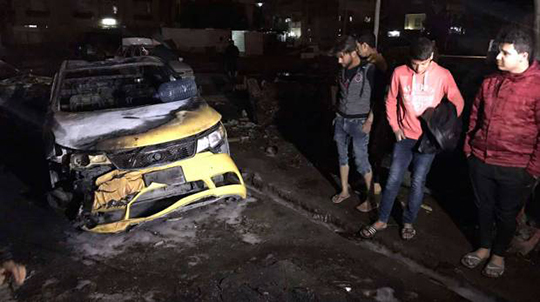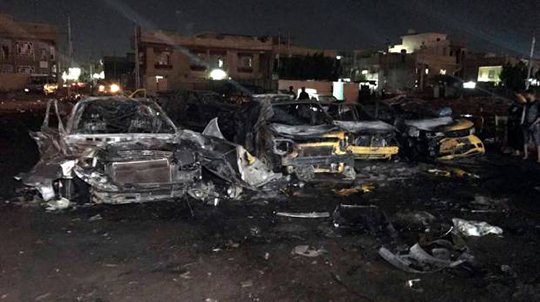Baghdad, Feb 17: A massive car bomb ripped through a used car market in southern Baghdad on Thursday, killing at least 51 people in the deadliest such attack this year, security officials said.

The Amaq propaganda agency linked to Daesh, which has claimed nearly all such attacks recently, reported the blast and described it as targeting “a gathering of Shiites”.
The explosion sent a thick plume of dark grey smoke billowing into the sky above Bayaa neighbourhood and caused extensive destruction.
An AFP reporter at the scene saw dozens of charred vehicles and pools of blood on the ground.
“A terrorist car bomb attack struck near car dealerships in Bayaa and resulted in the deaths of 45 people,” a spokesman for the Baghdad Operations Command said in a statement.
An interior ministry official gave the same figure and said at least 60 people were also wounded.
He said the emergency services were struggling to cope with the scope of the attack, which ripped through the busy car market at around 4:15pm (1315 GMT, 5.15pm Dubai), and warned that the death toll may rise.
Security officials could be seen inspecting the site before the sun went down, while some distressed civilians searched for relatives and others took pictures with their mobile phones of the large crater caused by the blast.
String of attacks
The explosion occurred in the same neighbourhood where a car bomb blast killed at least four people on Tuesday.
At least 11 people were also killed in a suicide car bomb attack claimed by Daesh Wednesday on the edge of Sadr City, a northern neighbourhood of the Iraqi capital that has been repeatedly targeted.
Baghdad was rocked by a wave of deadly suicide bombings during the first days of 2017 but relatively few explosions had been reported since then until this week.
More than 30 people were killed in a suicide car bomb attack on a busy square in Sadr City on January 2.
Thursday’s blast was the deadliest to hit Baghdad since a huge truck bomb attack claimed by Daesh set two shopping arcades in the Karrada district on fire and killed more than 320 people in July last year.
Daesh militants are currently defending the west bank of the northern city of Mosul, their last major urban stronghold in Iraq, against a huge offensive by the security forces.
Diversionary attacks
Four months into the broad military operation, Iraq’s largest in years, elite forces have retaken the eastern side of the city and are preparing for an assault on the part of Mosul that lies west of the Tigris River.
The militants have carried out diversionary attacks, such as raids in other towns and cities as well as bombings in Baghdad and elsewhere, in an apparent bid to stretch federal security forces and capture headlines.







Comments
Add new comment